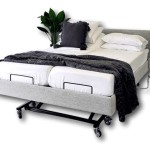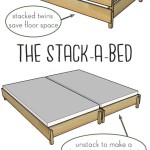Can Bed Bugs Bite Through Mattress Protectors?
Bed bugs are tiny, parasitic insects that feed on human blood. They are known for their ability to hide in cracks and crevices, making them difficult to eliminate. One common question that arises is whether bed bugs can bite through mattress protectors. While mattress protectors offer a degree of protection, they are not a foolproof solution against bed bugs.
The Effectiveness of Mattress Protectors Against Bed Bugs
Mattress protectors act as a barrier between the mattress and the bed bug population. They are typically made from tightly woven fabric, often with a waterproof layer, which can hinder bed bug access. The effectiveness of a mattress protector against bed bugs depends on several factors, including the type of protector, the material, and the severity of the infestation.
Some mattress protectors are specifically designed to repel bed bugs through the use of chemical treatments, such as permethrin or pyrethroids. These treatments can kill or deter bed bugs, providing an additional layer of protection. However, it's important to note that these chemical treatments may not be effective against all bed bugs, and their effectiveness can diminish over time.
Another factor to consider is the thickness and material of the mattress protector. Thicker protectors with tighter weaves can provide greater protection against bed bugs. However, even the thickest protectors may not completely stop determined bed bugs, especially if there are already a large number of them present.
How Bed Bugs Can Bite Through Mattress Protectors
While mattress protectors can provide a barrier against bed bugs, they may not be impenetrable. Bed bugs have a small body size and can squeeze into tiny spaces. If they find a hole or tear in the protector, or if it is not properly fitted, they can easily access the mattress underneath.
Another way bed bugs can get through a mattress protector is by travelling through seams or zippers. If the protector is not properly sealed, there may be gaps where bed bugs can enter. The effectiveness of a protector can also be reduced if it is not regularly cleaned and laundered. Bed bugs can hide in dirt and dust, making it easier for them to access the mattress.
Preventing Bed Bugs from Reaching Your Mattress
While no single solution can guarantee complete protection against bed bugs, there are several strategies that can significantly reduce the risk of infestation:
•
Regularly inspect your mattress and bedding.
Check for any signs of bed bugs, such as small, reddish-brown spots (bed bug feces), tiny bloodstains, or the insects themselves.•
Vacuum your mattress and bedding regularly.
This can help to remove any dust mites, bed bug eggs, or other bed bug debris.•
Wash your bedding in hot water and dry it on a high heat setting.
This will kill any bed bugs or eggs that may be present.•
Use a mattress protector that is specifically designed to repel bed bugs.
Look for protectors that are made from tightly woven materials and are treated with insecticides.•
Be mindful of potential introductions.
Inspect any used furniture or bedding before bringing it into your home.By following these steps, you can significantly reduce the risk of bed bugs reaching your mattress.

Can You Still Get Bed Bugs With A Mattress Cover

The Best Mattress Covers For Bed Bug Protection

Can You Still Get Bed Bugs With A Mattress Cover

Bed Bugs Do Mattress Encasements Help Pest Management Professional

Do Mattress Protectors Prevent Bed Bugs Yes No Here S Why Ecoy

Mattress Encasements For Bed Bugs

Do Bed Bug Covers Work Integrity Solutions

Can Bed Bugs Go Through A Plastic Mattress Cover

Are Bed Bug Mattress Covers Effective Encasing Stops Biting

Can Bed Bugs Live On Plastic Mattress Covers Pest Control Sleuth
Related Posts







